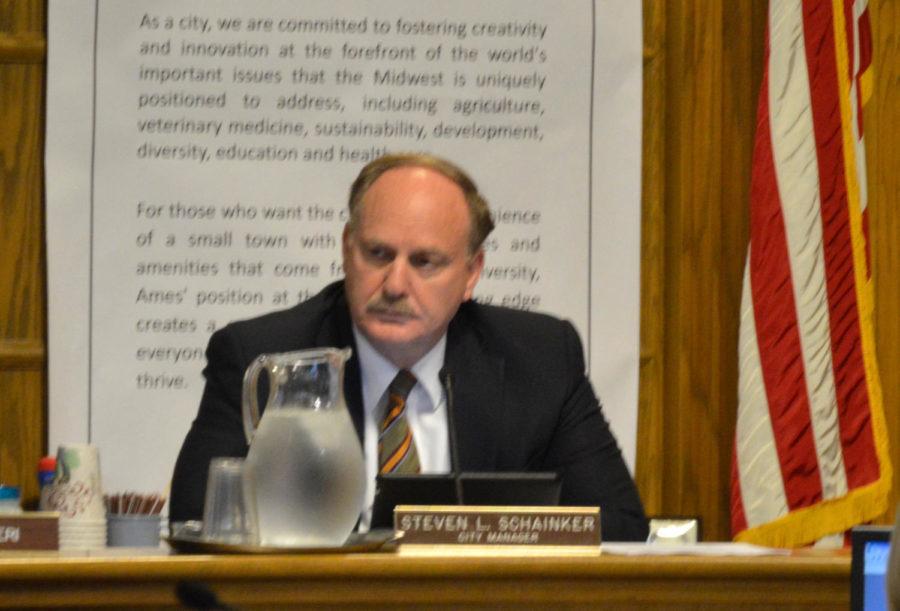Council moves forward with Campustown tax abatement
Matthew Rezab/Iowa State Daily
City Manager Steven Schainker listens as the Ames City Council discusses tax abatements at the Tuesday, June 9 meeting.
June 10, 2015
The Ames City Council moved forward Tuesday with a proposal to attract more mixed-use developments and small businesses to Campustown using tax abatement incentives.
In December 2014, the Campustown Action Association requested the council amend the Campustown Urban Revitalization Criteria Matrix for tax abatement and add a requirement to incentivize developers and property owners to lease to non-formula retail businesses.
“What that means essentially is that businesses that are not chain establishments would have a preference or an incentive for them to be incorporated into projects in Campustown,” said Kelly Diekmann, Ames Planning and Housing director.
Diekmann said 10 locations was a common threshold for being considered a non-formula business based on other cities that have launched similar programs.
After hearing options from Diekmann, and feedback from Ryan Jeffrey, the CAA’s business improvement chairman and owner of Arcadia Cafe, the council directed staff to draft new amendments to the existing regulations that award property owners tax abatements if the value of real estate meets specific criteria and increases 5 percent or more.
The council also requested city staff investigate the feasibility of requiring at least 30 percent of a development’s square footage to be dedicated to non-formula businesses in order to receive the abatement.
“When someone qualifies for tax abatement, it’s their choice to choose a schedule that the city has adopted,” Diekmann said. “Currently we allow for a three, a five or a 10 year abatement.”
Diekmann told council members that the longer the term of the abatement, the amount of abatement for each individual year is less. For example, an owner who chose the three-year term might receive an abatement of 100 percent each year, while a five-year term may provide a 50 percent abatement each year.
The council also directed staff to change the requirement that a building be built during or before 1941 to be eligible for adaptive reuse tax abatements to instead read “having been built at least 50 years ago”.
The issue is expected to be back before the council during late summer or early fall after the CAA conducts community outreach regarding the proposed changes.
“Clearly these are the beginning steps,” said Kim Hanna, director of the CAA, “We’re no where near the matrix being amended, but it’s a good start. We will be reaching out to the entire Campustown business district [for feedback] as we always do.”







